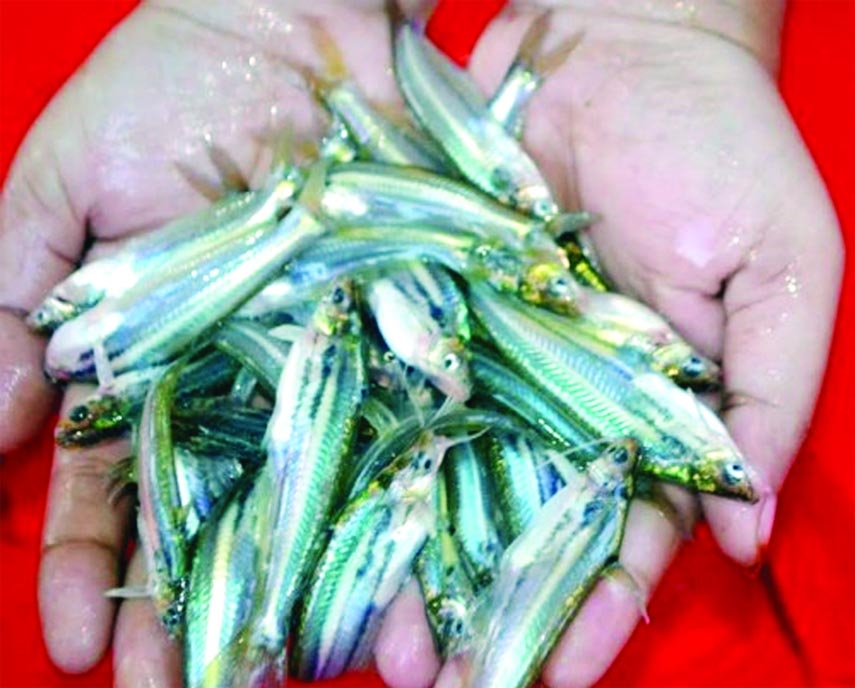
Our Correspondent :
The Fisheries Research Institute at Santahar in Bogra has succeeded in artificially breeding the country’s endangered small fish Batasi. Scientists at the Flood VM epicenter here have shown remarkable success. The senior scientific officer in charge of the Santahar Fisheries Research Institute and the Flood VM Substation, Dr. David Rentu Das has confirmed this success.
The scientist also claimed that this is the first time in the country that artificial insemination of extinct small fish Batasi has been successful.
It is learned that research work is underway on artificial insemination of 64 endangered small fish in the country. Earlier, the main laboratory of Bangladesh Fisheries Research Institute in Mymensingh was successful in artificial insemination of tube fish. Dr. David Rentu, head of the research team in charge of the Santahar sub-center, said that he has been working for a year on artificial insemination of small species of endangered species.
This success of Batasi will lead to huge demand for field fish farmers in the extinct Batasi fish farming and scientists hope that the availability of this fish will be readily available immediately.
He said that according to the data 6 years ago, out of more than two and a half hundred small species of freshwater fish in Bangladesh, 64 are endangered.
Of these, 30 are endangered, 9 are critically endangered and 25 are endangered. Scientist Dr. David Rentu Das said extensive research is underway to recover the endangered small fish. At present, research is underway on 14 endangered species, including Kazali, Kakila, Gang Tengra, Rani and Piyali.
“This fish is rich in nutrients,” said the researcher, who spoke on the success of artificial insemination.
Each 100 grams of edible fish contains 610 milligrams of potassium, 400 milligrams of calcium, 200 milligrams of magnesium, 200 milligrams of manganese, 33 milligrams of iron and 14 milligrams of zinc. And zinc helps to increase immunity. That’s why Corona advised me to eat more air.

